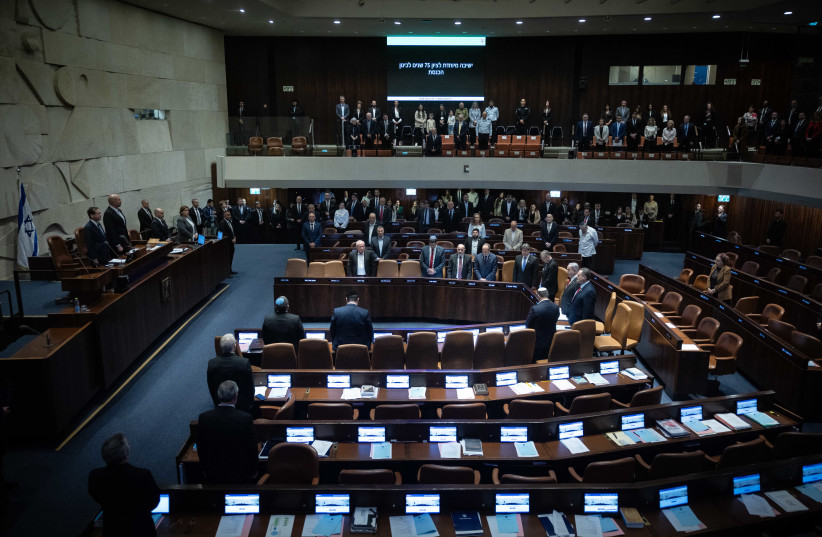Amidst a public debate about the justification for the decades-long blanket exemption from IDF service for haredi men, the Knesset's Foreign Affairs and Defense Committee (FADC) debated on Monday a bill to lengthen the age of exemption for reservists by one year.
The bill's intent is to preserve the current array of reservists at least until the end of 2024, as age barriers determine that if the exemption does not pass into law by February 29, thousands of men who have reached the age of 40 will be released from service.
According to Israel's existing law, IDF soldiers must serve in the reserves until the end of the calendar year in which they turn 40. That number is 45 for officers and 49 for specific roles deemed by the defense minister as especially necessary.
The war between Israel and Hamas broke out on October 7, and on December 31, thousands of men were scheduled to become exempt from service. On December 28, the Knesset lengthened service for these reservists until the end of February and now wishes to lengthen it again until the end of 2024. The bill proposal is for the provision to be temporary and only apply until the end of 2024.
Lengthening mandatory service
The proposal passed its first reading on the Knesset floor on January 29 and did not raise much attention. However, since then, the government has published a draft of two other bills it intends to promote, which will lengthen mandatory service for new recruits and nearly double the number of days reservists will have to serve every year. The bill did not address the fact that haredi men are given a blanket exemption from service, and it did not propose a plan to begin recruiting soldiers from a broader pool of candidates in order to lessen the burden on those who are already serving.

The debate on Monday also coincided with a hearing in the Supreme Court on the legality of the haredi exemption, as the bill that enabled it already expired at the end of June last year. These provided an opportunity for opponents of the haredi exemption to voice their positions in the Knesset debate over the one-year extension for reservists.
"The issue of extending service for mandatory and reserve soldiers cannot be separated from the question of haredi enlistment," opposition leader and Yesh Atid chairman MK Yair Lapid said at the committee debate.
"The first condition for joint living is that everyone has the same rights and the same duties. There is no such thing as unity without equality. There is no such thing as unity if all of the burden – operational and economic – falls on one group in the Israeli public," Lapid said.
Despite the fact that the committee was only debating the one-year extension for reservists and not the government's larger plan to increase mandatory and reserve duties, Lapid addressed the latter:
"There are 63,000 haredim who are at the age of service. If 10,000 of them enlist, there will be no need to extend mandatory service. If only a quarter of haredi men aged 20-49 serve in the reserves, then reserves can be limited to one month every year. This is not happening for one reason only: political pressure," Lapid said.
The haredi parties in the coalition, especially the Ashkenazi-haredi party United Torah Judaism (UTJ), are adamantly opposed to IDF service – and are unlikely to support any law that requires this. The Sephardic-haredi party, Shas, has expressed openness for those who do not study in yeshivot to join the IDF – but opposes any attempt to recruit yeshiva students.
At least one member of the coalition, Likud MK Tally Gotliv, said during the FADC debate on Monday that she would not support a bill that would grant sweeping exemption to any group in Israeli society, including the Haredim. Members of the Likud and the coalition's Religious Zionist Party have expressed similar sentiments, although most said that this cannot be reached without dialogue and the agreement of the haredi community.
Yisrael Beytenu chairman MK Avigdor Liberman said in a press conference ahead of his party's weekly meeting on Monday that every Israeli who reaches the age of 18 should either join the military or serve in a civil service. Liberman claimed that many Haredim wish to join the IDF, but that their political representatives were preventing this.
